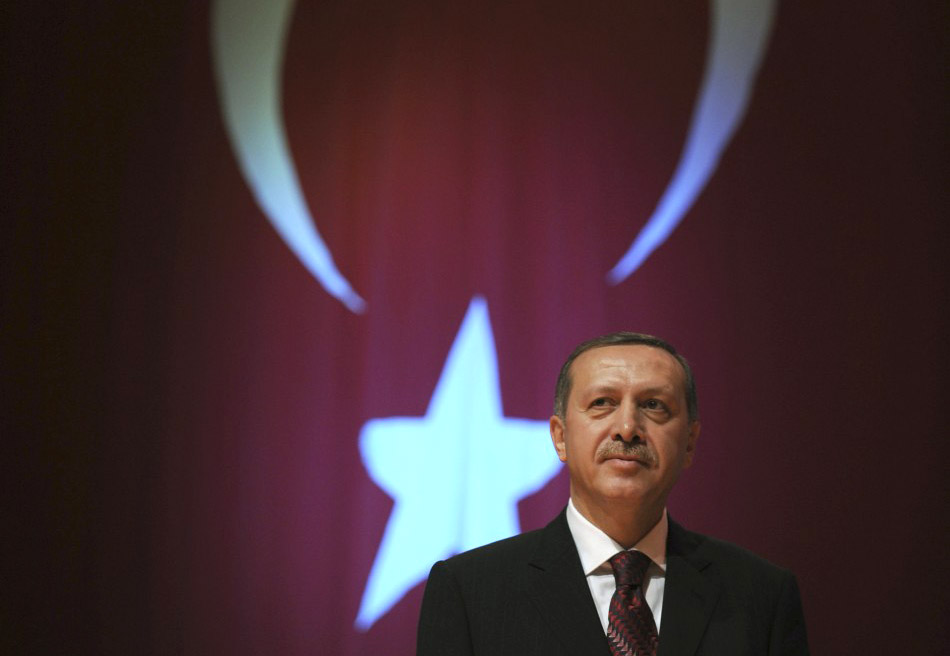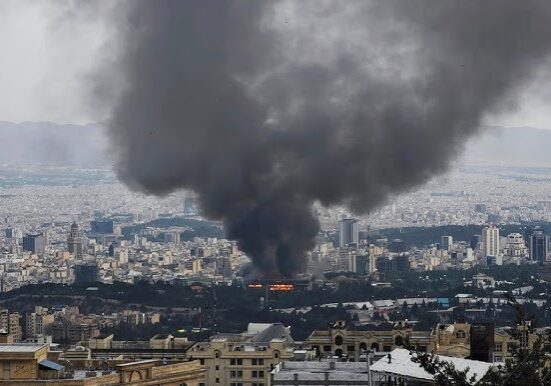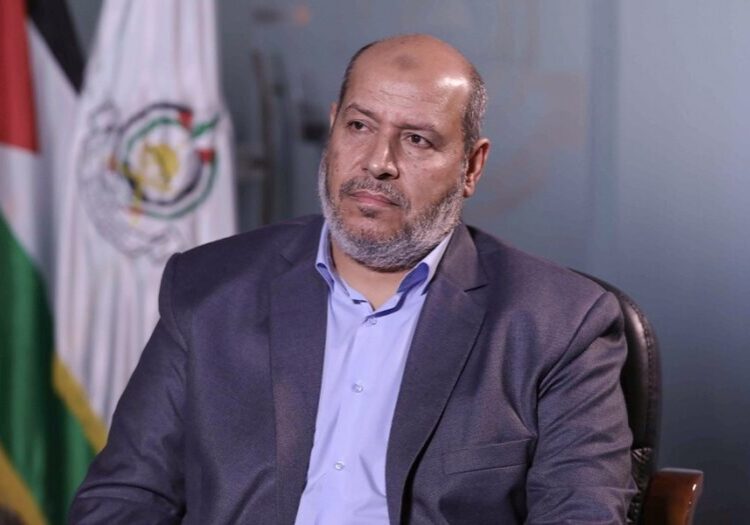Australia/Israel Review
Sick No More
Jun 27, 2011 | Amotz Asa-El

Recep Erdogan’s Road to Damascus
Amotz Asa-El
“The sick man of Europe,” is what one Russian Tsar called the declining Ottoman Empire, alluding to its rapidly shrinking domains and ballooning debts.
Today, less than a century after the Ottoman Caliphate was succeeded by a post-imperial, secularist, and introverted republic, Turkey is reasserting itself as an economic, political, and diplomatic force to reckon with. These efforts are embodied in the character, record, and visions of Turkish Prime Minister Recep Tayyip Erdogan.
Having won half the electorate, meaning more than 20 million votes, in June’s general election, the tall, stern-faced and tough-speaking Turkish premier emerged from that contest not only as his country’s incontestable prime minister, but as the strongest leader in the Middle East. No one in the region comes close to the former soccer player’s combination of a solid power base, nine-year incumbency, and an unrivalled four-year-term ahead of him.
Moreover, after this, he is clearly eyeing a potential two seven-year terms as President of Turkey, an office he may well win. That is what Turkish election posters were implying in saying the popular Erdogan intended to stick around until 2023.
Erdogan’s stabilisation of Turkey’s ordinarily turbulent politics already places him among the select three of 25 Turkish prime ministers whose terms in office were both durable and effective – alongside the republic’s legendary founder Kemal Atatürk, and Turgut özal, who led Turkey’s market reforms during a decade as prime minister and president before dying mysteriously in 1993.
Since assuming the premiership in 2002, Erdogan has presided over a period of unprecedented prosperity which included 26 consecutive quarters of GDP growth, a 50% drop in public debt, and the decline of inflation from 35% to less than 6%. Inspiring all this was Erdogan’s quest to harmonise Islamism with capitalism, in sharp contrast to neighbouring Iran’s “Islamist” economics of subsidies, price controls, and social immobility. Erdogan’s economic success also contrasts with the crisis in neighbouring Greece, and casts a poor light on the EU’s ongoing reluctance to countenance Ankara’s requests for admission.
Meanwhile, Turkey’s booming economy has broadened Erdogan’s view of the outside world. His government began to face east as well as west, rediscovering the same Levant that his predecessors, in their quest to bury the Ottoman past, had shunned. He declared a policy of “zero problems with neighbours,” making some overtures to Turkey’s longtime Kurdish and Armenian adversaries; establishing a free-trade zone with Syria, Lebanon and Jordan; he sided with Iran in its nuclear conflict with the US; and he sought a mediator’s role between Israel and Syria.
Now, however, the Middle East, in which Erdogan was working to reposition Turkey as a regional axis, is itself transforming. The significance of his response to this transformation can hardly be exaggerated, whether from the viewpoint of the Arab world, Iran, Israel, or the international system.
The Arab upheaval’s first impact on Erdogan, even before it reached Turkey’s doorstep, was a succession of personal humiliations from Arab leaders. The first was Libya’s Muammar Gaddafi, who initially ignored Erdogan’s offer to mediate between him and Europe, and later turned down Erdogan’s invitation of asylum.
Then came Egypt, which brokered the agreement between the rival Palestinian factions of Fatah and Hamas, a deal that Erdogan planned on engineering himself. The Palestinians, too, snubbed Turkey in those negotiations.
And now, overshadowing all this, comes the mayhem in Syria. Here it is not just the Turkish leader’s personal prestige that is at stake, but his country’s national security. Sharing a 600-km border with Syria, Turkey cannot remain indifferent to its neighbour’s domestic affairs.
Up until this year, Erdogan had orchestrated a close and personal relationship with Syrian President Bashar al-Assad, based on the latter’s retreat from Syria’s historic claim to the Alexandretta region of Turkey and Assad’s promise to stop aiding Kurdish insurgents in Turkey. At the same time, Turkish companies became increasingly involved in Syrian construction, retail, and finance.
Now all this is being shattered.
Erdogan’s attacks on Assad for shooting at Syrian demonstrators represents a sharp turn in Turkey’s approach toward its neighbour. The chaos beyond its southern border is intolerable for Turkey, whose worst fear is that Syria’s Kurdish minority will join hands with Turkey’s own restive Kurds. Erdogan’s reported demand to Assad, that he fire his younger brother Maher as head of the Republican Guard, will likely be ignored. Maher, who is believed to be the mastermind behind the killing of an estimated 1,400 Syrians as of June, is a lynchpin in Bashar’s operation. And since Erdogan surely knows he is demanding what cannot be delivered, it appears he is preparing the ground for a divorce from the Syrian President.
Judging by its response to the influx of Syrian refugees into its southeastern corner, Turkey has plans vis-à-vis Syria that look beyond the immediate horizon. When terrified Syrians fled the town of Jiser-a-Shujur, they found five well-organised camps awaiting them just beyond the Turkish border. Within days an estimated 10,000 refugees were inhabiting thousands of tents bearing the Turkish Red Crescent’s emblem, all replete with beds, showers, and a sanitary system. At the same time, well-guarded fences were raised between the camps and the Turkish hinterland, meaning that the refugees, who were also forbidden to talk to the media, were effectively caged in.
Consequently, some experts believe what Erdogan has in mind is nurturing the refugee camps as a breeding ground for an avant-garde that in due course will spearhead the replacement of Syria’s Ba’ath regime. This assessment was enhanced by Erdogan hosting recently a gathering of leaders from various Syrian opposition groups in the resort town of Antalya to discuss the unrest and coordinate their future actions.
In remarks made following his electoral victory, Erdogan shed some light on his conclusions from the regional mayhem, saying that in dealing with the Middle East, Turkey would now work less with regimes and more directly with the people. As part of this, Turkey hosted young Egyptians to show them how it conducted its election, in what reflected a desire to fashion Turkey as a regional tutor for emerging democracies.
In Syria, however, the stakes are higher, as the endgame seems to be less about Arab freedom and more about Turkish hegemony.
Diplomats and intelligence agencies throughout the region believe Erdogan hopes to use the Syrian crisis in order to install a regime in Damascus that would represent the Sunni majority, in place of the Alawite tribe that has been ruling Syria for the past 42 years. In an extreme scenario, for instance Kurdish insurgency, Erdogan might be tempted to interfere militarily in Syria. More likely, Erdogan could accomplish his goal through a free election where he would finance a loyalist group that he would assemble, nurture, and lead to victory.
A Syria that is a Turkish satellite would reshuffle the entire Middle East. It would antagonise Iran, which is the Alawite regime’s main strategic patron. It would corner Hezbollah, as whoever rules Damascus will cast his shadow over Lebanon. And it would humiliate Saudi Arabia and Egypt, who will have to view such a Turkish penetration of the Arab sphere as a de facto restoration of the Ottoman Empire, a thought which to them is anathema.
Of course, the fact Erdogan has such designs does not mean they will materialise.
True, some of his previous ambitious plans came to pass – from weakening the Turkish judiciary, through reining in the army, to subduing much of the media by jailing hundreds of journalists. But then again, many of his grand plans, particularly in foreign policy, have failed.
His brave vision of “zero problems with neighbours” proved to be little more than rhetoric.Overtures to the Kurds stopped short of giving them what they really wanted, educational autonomy, and that minority is now again at loggerheads with Ankara. A much-heralded truce with Armenia collapsed; and in Cyprus there is stalemate, after a hardline nationalist was elected leader of the Turkish north.
It follows that Ankara’s apparent quest to refashion Syria as a Turkish satellite is by no means a sure bet. Still, from an Israeli viewpoint it must be seriously contemplated.
Israel has been watching the crisis in Syria closely and anxiously. While there is no affection in Jerusalem for the Assad Regime, whose hostility to Israel has been consistent and particularly fierce, there is also concern that, if Assad is unseated, Syria would end up in unpredictable Islamist hands.
There was a time when Turkish sponsorship of a Sunni regime in Syria would ensure its moderation. Erdogan, however, has been cool to Israel from the day he rose to power, and later became altogether hostile, first after then-Prime Minister Ehud Olmert did not share with Erdogan his imminent plan to counterattack in Gaza during a visit to Ankara; then when Deputy Foreign Minister Danny Ayalon publicly humiliated the Turkish Ambassador during a meeting; and finally during last year’s flotilla affair, when nine Turkish activists were killed while attacking Israeli troops in the Mediterranean.
However, Turkey’s rethink of its approach to the region it inhabits may also restore some of the old harmony with Jerusalem. Ankara’s already visible discord with Teheran concerning Syria places it, in spite of itself, on the same side of the equation with Israel, as does its frustration with Arab governments’ scorn for their people’s will.
In the same vein, the Arab elites’ general suspicion of Turkey’s regional hyperactivity may remind Erdogan that, with all due respect to his Islamism, the economic vitality and political pluralism of Turkey – no longer “the sick man of Europe” – also reflect more of a common denominator with Israel than with any Arab state.
Tags: Middle East






